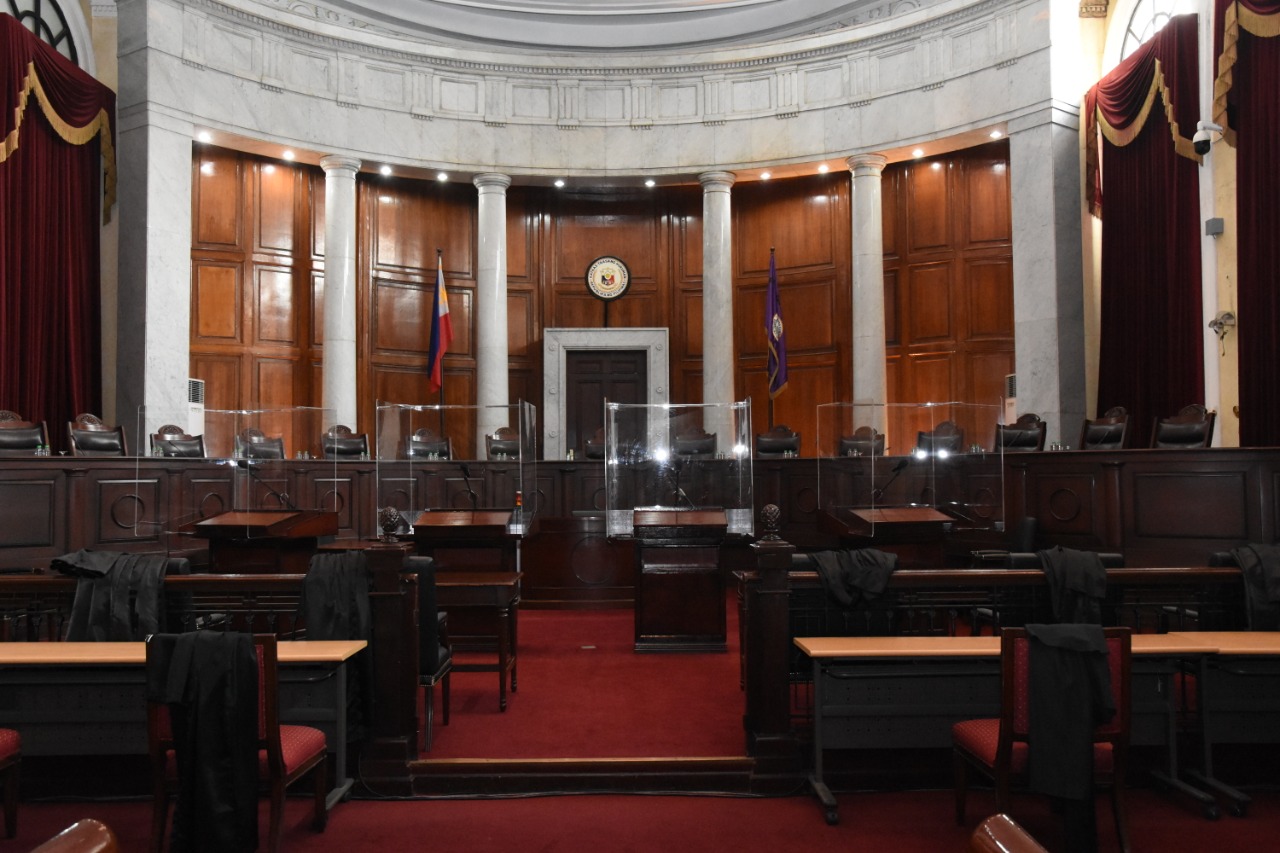
Inside the Supreme Court session hall for the oral argument on the Anti-Terrorism Act. Photos from SC Public Information Office
MANILA, Philippines — Moro lawyer and peace advocate Algamar Latiph called on the Supreme Court to stand firm “in the name of liberty and love” in deciding on the petitions questioning the legality of the Anti-Terrorism Act (ATA).
Latiph, during the oral argument, said the ATA was created in response to the Marawi siege.
However, instead of curtailing violence, the law has institutionalized “extreme measures” that put in danger, the constitutional rights of Filipinos.
At the receiving end of such law, he said are the Muslims and the Indigenous Peoples (IPs) who have been prejudiced in the government’s racial profiling.
“The law is unconstitutional because it failed to respect and protect the rights and freedom of the people which stated in our petition that Moro have been victims of historical injustice [such as] massive land grabbing, discrimination, and human rights violation through an extreme military measure,” he said adding that history also showed that IPs are equally discriminated and subject to injustice as well.
As proof, he said he mentioned two Aetas who are the first to be charged for violating the Anti-Terrorism Law.
“This law negates our constitutional rights. Our democracy is under siege. This Supreme Court is the last line of defense in protecting it. Please stand firm in the name of love and liberty,” he said.
The oral argument will resume next week.
RELATED STORY: 16th petition vs terror law filed at SC